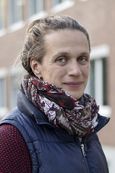Project
BioServicES: Linking Soil Biodiversity and Ecosystem Functions and Services in Different Land Uses
![[Translate to English:]](/media/_processed_/c/5/csm_LOGO-BIOSERVICES-CMYK-primary2_a76b135c7c.jpg)
BioServicES: Linking Soil Biodiversity and Ecosystem Functions and Services in Different Land Uses: From the Identification of Drivers, Pressures and Climate Change Resilience to their Economic Valuation
BIOservicES will gather a multidisciplinary team of soil scientists, ecologists, biologists, agronomists, foresters, applied economists, public agencies, consulting and advisor SMEs, modellers, statisticians, social innovators, public administration and experts in stakeholders engagement and in communication and dissemination activities, to provide new knowledge about the soil ecosystem functions and services associated to soil organisms and develop new indicators, tools and incentives to identify and monitor the keystone soil organisms that contribute to the delivery of ecosystem services in European land uses.
Background and Objective
There is evidence for the pivotal role of soil biodiversity in multiple ecosystem functions (EF) and ecosystem services (ES). However, the precise contribution that soil organisms play alone and in interaction in regulating multiple ecosystem functions and services (EFS), in different biogeographic regions and land uses, remains largely unknown. This fact limits our ability to predict how soil biodiversity can affect human wellbeing and ecosystems sustainability. EF refer to natural-biological processes, while ES refer to those ecosystem flows that contribute to human well-being. Thus, the EF are the ecological processes that result in the supply of ES. There is a need to understand the relationships between soil organisms and the provision of EFS in multiple land uses. In this sense, it is essential to change the way soil biodiversity is understood as a key integrant of soil health, and start considering it as an investment opportunity for high-quality services (i.e. healthy products, clean water and air, climate regulation and adequate habitats for human wellbeing).
The BIOservicES experimental approach will allow to identify general ecological patterns related to the distribution, abundance, diversity, interrelations and functioning of soil organisms when supporting the provision of multiple EFS, and their conservation and consideration by current policies.
Approach
BIOservicES will perform an observational study focused on three management intensities in 25 lighthouses (LHs) with eight different land uses (field scale), and the integration of all land uses within a region (landscape scale). The 25 LHs will act as hubs for co-creation, co-design and co-learning (multi-actor approach, responsible research and innovation (RRI) and open science). They are located in five biogeographical regions (Alpine (Switzerland), Atlantic (Spain), Boreal (Latvia), Continental (Germany) and Mediterranean (Spain)) with eight different land uses (urban, industrial, agricultural, forestry, mining, (semi)-natural, wetland and dryland), covering 95% of the EU surface. Following the definitions given by the Implementation Plan for the Soil Mission (Horizon Europe), we consider a LH as a venue for demonstrating long-term solutions, that are exemplary in their performance to improve soil health for a specific land use.
Our Research Questions
BIOservicES main research questions are:
- Which are the key organisms mostly related to the provision of ES and, therefore, to be prioritized in conservation, restoration and management programmes?
- Is land use intensity and soil structure affecting the ability of soil organisms to provide multiple EFS and adapt to climate change?
- Can we maintain and restore soil health and resilience to climate change by developing incentive tools based on the economic valuation of the ES in which soil organisms are involved?
Links and Downloads
Thünen-Contact

Involved Thünen-Partners
Involved external Thünen-Partners
-
Universidad Politecnica de Cartagena
(Cartagena, Spanien) -
Universidad de Vigo
(Vigo, Spanien) - (Flanders Research) Institute for Agricultural and Fisheries Research, (ILVO)
(Oostende, Belgien) - CREA, Consiglio per la Ricerca in Agricoltura e l'Analisi dell'Economia Agraria
(Rom, Italien) -
CMCC Foundation – Euro-Mediterranean Center on Climate Change
(Trieste, Italien) - Agencia Estatal Consejo Superior de Investigaciones Científicas (CSIC)
(Madrid, Cordoba, Spanien) -
Technische Universität München
(München, Freising-Weihenstephan, Deutschland) - Forschungsinstitut für biologischen Landbau (FiBL)
(Frick, Schweiz) - Wageningen University & Research (WUR)
(Wageningen, Niederlande) -
Latvian State Forest Research Institute - LSFRI, Silava
(Salaspils, Lettland) -
Scotland's Rural College (SRUC)
(Edinburgh, Großbritannien (inkl. Nordirland)) - Università degli Studi della Tuscia
(Viterbo, Italien) - University of Portsmouth (UoP)
(Portsmouth, Großbritannien (inkl. Nordirland)) -
Flächenagentur Rheinland GmbH
(Bonn, Deutschland)
Funding Body
-
European Union (EU)
(international, öffentlich)
Duration
9.2023 - 8.2028
More Information
Project funding number: 101112374
Funding program: EU - Horizon Europe
Project status:
ongoing





